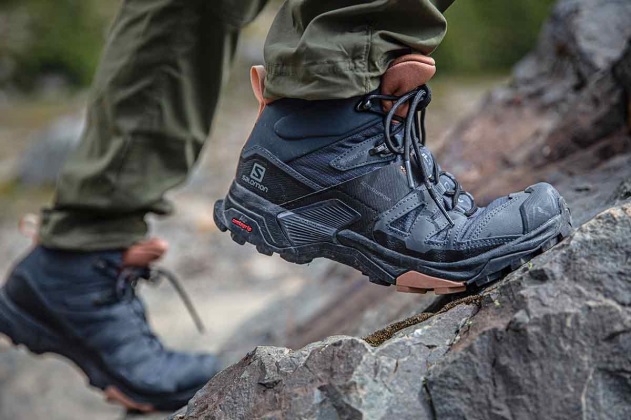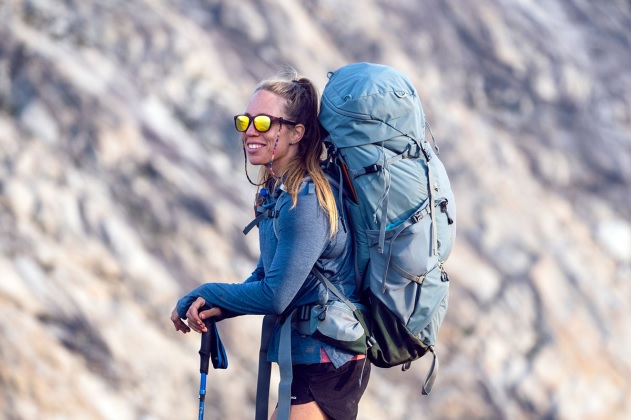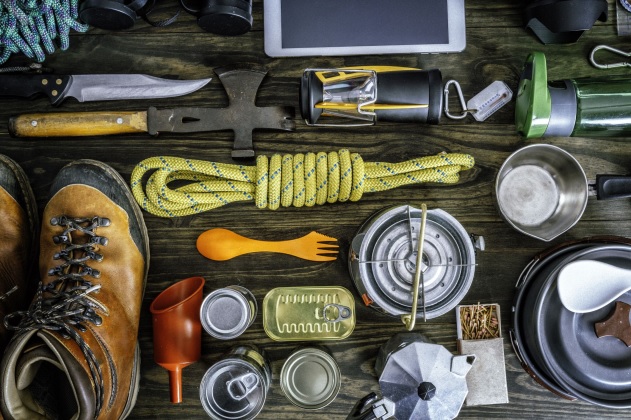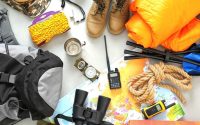From Shoes to Snacks: Essential Items for a Successful Hiking Trip
Are you ready to hit the trails and venture into the great outdoors? Hiking trips are the perfect way to connect with nature, tone your muscles, and enjoy the fresh air. But before you head out, it’s essential to prepare for the trip by gathering items that will keep you comfortable, safe, and equipped to take on whatever the trail throws your way.
In this guide, we’ll walk you through the must-have items for a successful hiking trip. Whether you’re a hiking pro or a first-timer, our extensive list will ensure you’re well-prepared for any adventure, big or small.
Shoes

Number one on our list of hiking must-haves is sturdy and comfortable shoes. Hiking shoes offer vital support, ensuring stability for your feet, ankles, and arches, which is especially crucial on uneven and rocky terrain to prevent potential injuries. Additionally, they provide the necessary traction to maintain balance and grip on slippery or steep surfaces.
Choosing the right pair of shoes is critical because they have a significant impact on your overall hiking experience. We suggest purchasing a pair of Salomon outdoor shoes that will enable you to trek longer distances without discomfort or blisters, enhancing the enjoyment of your journey. Salomon shoes often feature advanced technologies, such as GORE-TEX waterproofing and Contagrip outsoles, which provide excellent traction and protection in various weather conditions.
You can pick from a broad selection of outdoor footwear suitable for a wide range of activities, from day hikes to more challenging multi-day treks. Salomon outdoor shoes are extremely reliable and crafted using high-quality materials, making them highly durable.
Investing in quality hiking shoes such as Salomon outdoor footwear, ensures their longevity, accompanying you on countless adventures. When purchasing hiking shoes proper fit is vital. Make sure the shoes are snug but not too tight, with enough room for your toes to move comfortably. You can test them with hiking socks to ensure the right fit. Look for shoes made of breathable and durable materials, such as synthetic fabrics or leather, to keep your feet comfortable and protected.
Moreover, consider factors including ankle support, waterproofing, traction, flexibility, and weight. We also suggest you plan for a break-in period before your hike to get used to the shoes and prevent blisters on the trail.
Clothes
When selecting clothes for hiking, it’s essential to consider factors that contribute to your comfort, safety, and overall enjoyment on the trail. Also, the specific clothing you’ll need depends on aspects like the hiking trail’s difficulty, weather conditions, and the duration of your hike.
Opt for moisture-wicking fabrics, such as synthetic blends or merino wool, which keep sweat away from your skin and prevent discomfort. Layering is necessary for adapting to changing weather conditions so make sure you dress in layers to regulate your body temperature easily.
Ensure your clothing dries quickly to handle sweat or unexpected rain, especially during multi-day hikes or wet environments. Also, consider wearing long-sleeve shirts and pants as they offer protection from the sun, bugs, and any rough vegetation along the trail.
Clothes that allow freedom of movement are a must, so avoid anything too tight or loose that may cause discomfort during your hike. You must also be mindful of seasonal considerations and adapt your attire for colder or warmer weather. And don’t forget to pack extra clothing in case you get wet, muddy or sweaty.
Backpack

A backpack is essential for hiking as it helps carry all your gear, and keeps your items well-organized and easily accessible, ensuring you are fully prepared for the journey ahead. Also, it allows you to be hands-free so you can navigate the trail better. Moreover, carrying a backpack encourages responsible hiking by letting you carry out your trash.
You need to consider several factors including the suitable capacity, fit, and comfort before you select the ideal hiking backpack. It’s beneficial to prioritize lightweight and durable options with easy access to gear. Some backpacks even have pockets for water, allowing you to carry enough water to stay hydrated throughout your hike.
Sun Protection
Having sun protection is crucial for hiking, especially for longer treks. Prolonged exposure to the sun’s harmful UV rays can cause serious consequences such as skin damage, dehydration, premature aging, and an increased risk of skin cancer.
That is why, you need to ensure you are well-protected from the sun by using sunscreen with SPF 30 or higher and wearing sunglasses to protect your eyes. Additionally, wear loose-fitting clothing that covers your arms and legs, and don’t forget a wide-brimmed hat to shade your face and neck. Make sure you stay hydrated by drinking lots of water and if possible, take breaks in shaded areas.Water and Food
Bringing water and food on a hike is essential for maintaining energy levels, staying hydrated, and sustaining your body during physical activities like hiking. Carry an adequate amount of water to last the duration of your hike, and drink regularly to stay hydrated. You should also consider packing a filtration system if you want to refill at a natural water source.
In terms of food, choose lightweight, energy-rich snacks like trail mix, energy bars, fruits, or sandwiches that are easy to carry and provide a good mix of carbohydrates, protein, and fats. Remember to choose foods that you enjoy and are familiar with, as hiking is not the time to experiment with new foods that might not sit well with your stomach.
Hiking Tools

There are several hiking tools you should think about packing before going on a hike. For instance, navigation tools like a map and compass or GPS and a first aid kit are essential safety items to take on your trip. In addition, carrying a flashlight or headlamp, a fire starter, and a whistle can be valuable in emergencies. A knife or multi-tool is also useful for various tasks such as food cutting or gear repair. These hiking tools ensure that you will navigate the trail successfully, tend to injuries, and call for help if needed, making your hiking trip safer and more enjoyable.
Takeaway
In conclusion, packing the right essentials is crucial for a successful hiking trip. With sturdy shoes, comfortable clothing, and a well-prepared backpack, you’ll be ready to embrace nature’s beauty and conquer the trail. Don’t forget to prioritize safety, respect the environment, and fully enjoy the adventure while making long-lasting memories in the great outdoors. Happy hiking!



